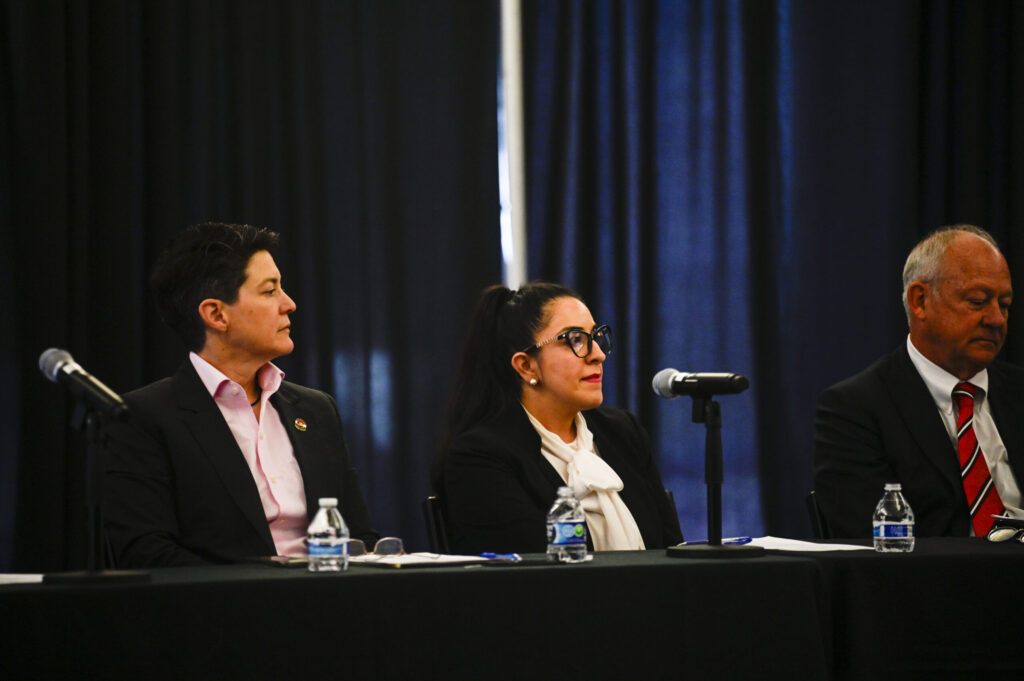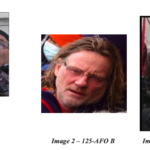Colorado Supreme Court to decide fate of racial bias rule after hearing cases

The Colorado Supreme Court will likely wait until next year before deciding whether to make it more difficult for attorneys to dismiss people of color from criminal jury trials for reasons that, while not explicitly racial, may still correlate with their race.
Earlier this week, Colorado Politics reported that more than 200 days have elapsed since the Supreme Court held a public hearing in February on a proposal to address less explicit forms of racial bias in jury selection. In the past five years, the court has never taken so long to act on a rule after a hearing.
Following the report, the judicial branch shared an email with Colorado Politics that Justice Carlos A. Samour Jr. sent on behalf of the court to its criminal rules committee in June. The committee drafted the proposed rule change and Samour is the court’s liaison.
“On behalf of the supreme court, I write to provide an update on your proposal,” Samour wrote. “Since the public hearing, we have had multiple discussions about your proposal.”
Samour elaborated that the justices had, in recent months, agreed to review three appeals that raised questions of racial bias in jury selection. None has received an oral argument yet, although one case is scheduled to be heard when the court returns from its summer recess this month.
As a result, “we believe it is prudent to wait until we announce our opinions in those cases before determining how to proceed on your proposal,” Samour concluded.
Joyce Akhahenda, a public defender in support of the rule change who previously told Colorado Politics she hoped the delay would result in a positive outcome, said she had not seen Samour’s email.
“It is good to know for certain why,” she said. “I don’t know exactly how long decisions take except to know that it is a long time.”
Akhahenda agreed that, if the Supreme Court planned to pause its consideration of the rule change until issuing opinions in the three cases, there would likely be no new rule until 2024.
“But that would depend on if there are any delays or extensions that affect when the briefs get complete, when they hold the argument and when they issue the opinions,” she said.
Other attorneys who originally spoke to Colorado Politics subsequently admitted they knew about Samour’s email, but did not disclose its existence to Colorado Politics.
Nearly 40 years ago, the U.S. Supreme Court recognized in Batson v. Kentucky that purposeful racial discrimination in jury selection was unconstitutional. Now, if a party – typically the prosecution – dismisses a juror of color, the defense may raise a “Batson challenge,” forcing the prosecutor to justify the dismissal with a non-racial reason.
The proposed change to criminal Rule 24, however, would reduce less obvious forms of exclusion that are not explicitly linked to a person’s race – for example, dismissing a juror of color for expressing distrust of police, living in a “high-crime neighborhood,” or having prior contact with law enforcement. The rule would also create restrictions on removing jurors for their demeanor – like when an El Paso County prosecutor dismissed a Black woman who allegedly had a “sour look on her face.”
The criminal rules committee, which consists of prosecutors, defense attorneys and judges, produced the draft racial bias rule and the Supreme Court set it for a hearing in February. Prosecutors voiced opposition, deriding it as “affirmative action in jury selection” and warning that prosecutors could be afraid to strike jurors of color. Defense attorneys and some trial judges countered with their own examples of bias under the current system.
Asked whether the Supreme Court would hold off on accepting any more racial bias-related appeals until after it decided its existing cases and moved forward on the Rule 24 proposal, a judicial branch spokesperson said the justices would address that on a “case-by-case basis.”
“The court is mindful of the implications of these cases and proposed rule change, however one step must follow the other,” said deputy public information officer Jon Sarché. “These matters take time, and the court is going to take the time necessary to ensure that any rule change is made in the most thoughtful and thorough manner possible.”
Akhahenda, the public defender, said she did not see a need to resolve the bias-related appeals before acting on the rule, as current case law is rooted in purposeful racial discrimination. The change to Rule 24, on the other hand, addresses presumed racial discrimination.
“Implicit bias is very different from purposeful discrimination,” she said. “I hope that the delay to wait on these decisions is not indicative of a negative response because there is still a need for the proposed rule change.”














